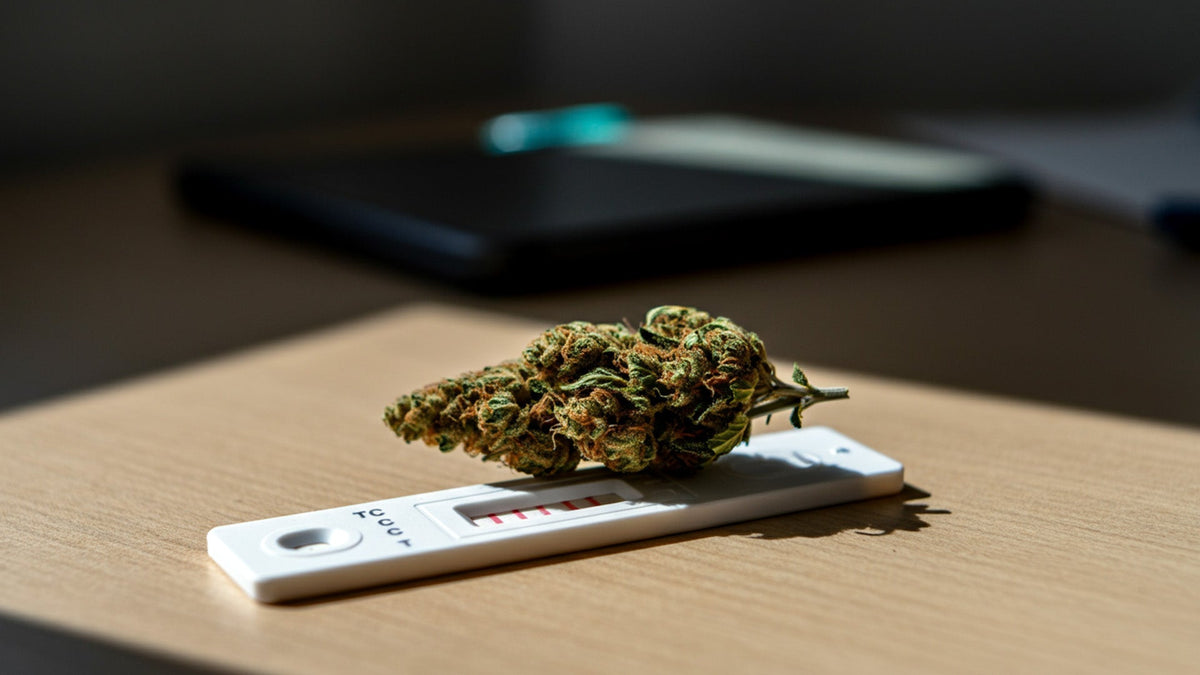
Can THCP Show Up on a Drug Test: Explained
|
|
Time: 6 min
Are you 18 years old or older?
I hereby declare that I am over 18 years of age and I also declare that I am aware that the following pages contain information about cannabinoid products.
Sorry, the content of this store can't be seen by a younger audience. Come back when you're older.
|
|
Time: 6 min
Many people are curious about new cannabis products, like THCP. But with the interest also comes the question: Can THCP show up on drug test? With THCP's strong effects getting more attention, it's important to know how it affects your body, metabolism, and if necessary, also drug tests.
Table of Content
Key Takeaways
Cannabis drug tests use science to find THC and its breakdown products. They look for cannabinoids, like THC, which makes you high. THC breaks down into metabolites as your body processes it.
These tests can vary in what they find and how sensitive they are. But most workplace tests aim to spot recent cannabis use. They check for Tetrahydrocannabinol (THC) and its metabolites in urine, blood, or saliva.
In Germany and many European countries, workplace drug tests check for THC metabolites in urine. They look for THC-COOH, which is a key indicator. The first test, an immunoassay screening, can detect THC at about 25 ng/mL.
If the first test shows THC, a more detailed test is done. This test, using GC-MS or LC-MS/MS, checks for 10–15 ng/mL. But, these tests might not catch THCP because it's similar to THC. This similarity can lead to false positives. This means the test might show THC when it's actually THCP. This is a big problem if the test can't tell THC and THCP apart.
Tests might also pick up other cannabinoids, but this is rare. Modern tests are good at avoiding false positives. Knowing how cannabis drug tests work and their limits is key. It helps you understand what they mean and what they show about your cannabis use.
THCP's interaction with drug screens is complex. It involves how this cannabinoid changes in the body. These changes can affect its detection on drug tests.
THCP is broken down by the liver, like other cannabinoids. Enzymes in the liver turn THCP into different metabolites. These metabolites are then passed out through urine and feces.
The half-life of a substance is how long it takes for its level to drop by half. For THCP, this time affects how long it stays detectable. Research is ongoing, but it's known that THCP's metabolites might be similar to THC's. This could mean they show up on standard cannabis tests.
Another key question is if THCP's metabolites are like THC's. If they are, standard THC tests might pick up THCP use. Studies show that while THCP's structure is different, its breakdown process is similar to THC's. This could cause some drug tests to show false positives.
This issue is a worry for people who have to take drug tests. It's important to know how THCP interacts with these tests. This helps in understanding test results correctly.
Failing a drug test because of THCP is a big worry. Several things can increase this risk. These include:
Knowing these factors can help users gauge their risk of failing a drug test.
Screening errors can also cause false positives. These errors can come from:
Understanding these issues can help grasp the complexities of drug testing for THCP.
THC is the most known psychoactive in cannabis. THCP, or Tetrahydrocannabiphorol, is newer and more potent. The potency difference impacts how long they stay in the system and their detectability in tests.
THC's detectability in urine can last up to 30 days for heavy users. The exact time for THCP is less known but might be longer due to its longer half-life. This means THCP could be detectable for a longer time, possibly longer than THC.
For those facing drug tests, knowing these differences is critical. If you use THCP, be aware it might be detectable longer than THC. Consider the following:
More research is needed to fully grasp THCP's interaction with drug tests. But knowing the differences can help individuals make informed choices about cannabis use, even when facing drug tests.
For those facing drug tests, knowing the risks of THCP is key. Before using THCP, it's important to understand the risks of failing a test.
To lower risks, consider these tips: know how sensitive the drug test is, how THCP is metabolized in the body, and its detection window.
If you have a drug test coming up, don't use THCP products. The risk of failing a test due to THCP is high. Avoiding it can help avoid this risk.
Being informed about THCP and drug screens helps make smart choices. This is important, even when facing a thcp drug test.
THCP is very potent, and it's not something to ignore if you're facing a drug test. Most tests look for THC, but THCP's similarity might cause a positive result. The risk is higher if you use it often or in big amounts.
Because research is ongoing, we don't know how long it stays in your system. This makes it important to be careful. If you're facing a test, it's best to avoid THCP. Knowing how your body handles cannabinoids and how tests work helps you make smart choices. Until tests can tell THCP apart from THC, using it is risky. Stay updated and plan your use wisely.
THCP, or Tetrahydrocannabiphorol, is a compound in cannabis. It can be found by drug tests, like THC, the main psychoactive part of cannabis.
These tests search for THC metabolites in urine, blood, or saliva. They usually find THC-COOH, a THC breakdown product. The test result threshold is often 25 ng/mL for urine tests.
There's a chance THCP could lead to a positive test, mainly if the test looks for THC. Similar metabolites can cause false positives or detection.

